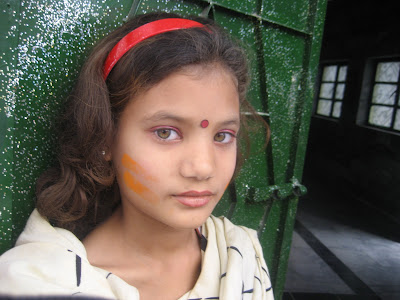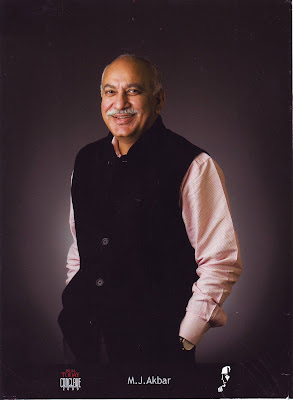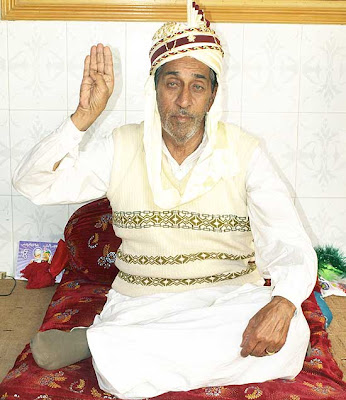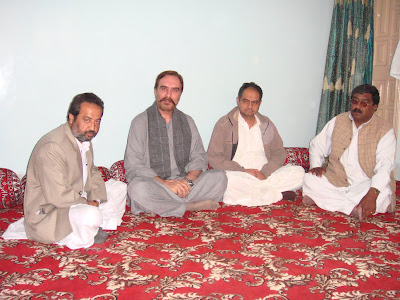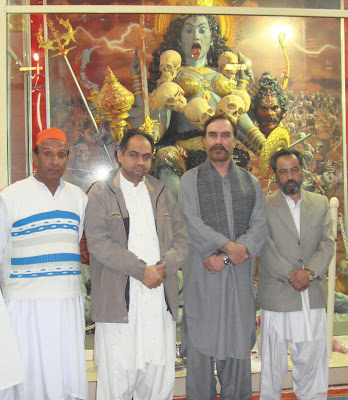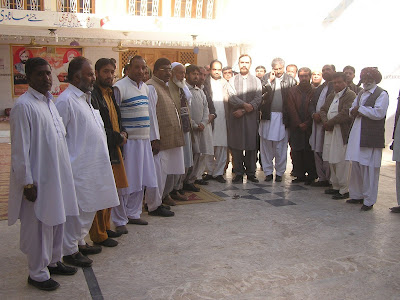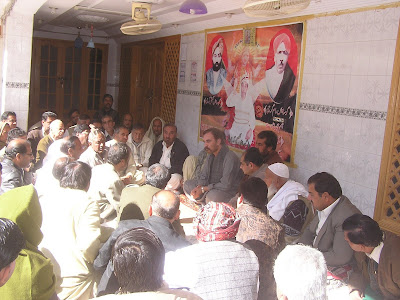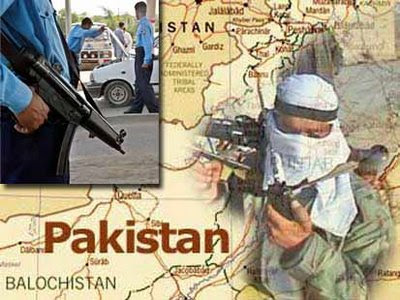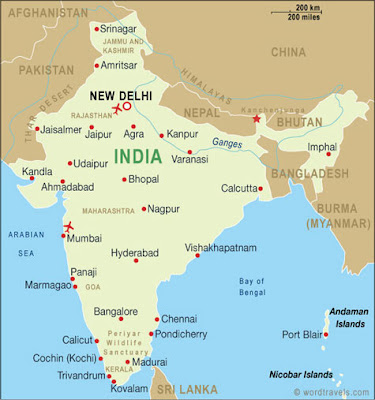Thursday, March 31, 2011
Amritsar : While the Sikh leadership in India, especially in Punjab, is worried over rising trend of ‘patitpuna’ (apostate), a large number of [Sindhi Sehajdharis] in Pakistan, have joined the Sikh fold by getting themselves baptised.
[At least 25 per cent ‘Sehajdhari Sikhs’ from the Sindh province have entered the Khalsa Panth, by taking Amrit, in the recent past.]
It sounds unbelievable that persons who introduced themselves as Jawahar Singh, Vijay Singh and Parkash Singh with blowing beards were Jawahar Lal, Vijay Kumar and Om Parkash, respectively, only few months ago. As compared to the Hindus, the Sikhs are considered more safe in Pakistan. Many Pakistani Hindus, who had come to India, in the past had never returned to their country, due to their continuous persecution.
Talking to The Tribune, Mr Vijay Singh said there were more than 15 lakh Hindus in Sindh province itself, who were devout Sehajdhari Sikhs. He said most of the Sindhis could easily read Sri Guru Granth Sahib in ‘Gurmukhi’ script without any problem. Mr Darshan Singh (previous name Prof Darshan Singh Ji Khalsa) said the ‘Gurmukhi’ was being taught in Hindu temples and Gurdwaras to the younger generation, so that they could remain devout Sikhs.
These temples, schools and Gurdwaras include Baba Hardass Ram School, Gurdwara Nanakwara, Gurdwara Bhai Joga Singh, Guru Arjan Dev Pathshala and Baba Bhoj Ram Temple. Raja, a student of class VII from Dehrki district (Pakistan) said he would be baptised as per the wishes of his parents (Sehajdhari Sikhs) shortly.
Baba Amir Singh and Baba Amarjit Singh from Peshawar said the Pakistani Sikhs got disappointed when they saw ‘patit’ Sikhs accompanying the Indian jathas, who visited Pakistan every year, to pay their obeisance in Gurdwaras there. They said the government of India should not give visas to the ‘patit Sikhs’ to visit Pakistan as their appearance hurt the sentiments of the Sikh Sangat in Pakistan. They said the SGPC should not recommend the visas at ‘patit Sikhs'.
Baba Amarjit Singh, a Granthi of Gurdwara Joga Singh (Peshawar) said the Sikh pilgrims from Pakistan would like to meet Giani Joginder Singh Vedanti, Jathedar Akal Takht for seeking his guidance to maintain ‘Maryada’ in gurdwaras of Pakistan.
Though the SGPC or Akal Takht object to the performance of akhand path in temples in India, Sri Guru Granth Sahib is placed in a number of temples in Pakistan. A number of Pakistani Hindus including Mr Jai Ram and Mr Jaipal said they perform path of Sri Guru Granth Sahib in temples every day.
Nationwide, there are no reliable numerical figures for Sikhs in the country. Estimates vary, the US Department of State estimates 20,000.The largest Sikh population in Pakistan is found in Peshawar, in the Khyber-Pakhtunkhwa, which was spared the scale of violence during partition that raged in Punjab. There are small pockets of Sikhs in Lahore and Nankana Sahib in Punjab.
After the creation of Pakistan the Sikh community's rights were diminished. Recently the Sikh community within Pakistan has been making every effort possible to progress in Pakistan. For example Harcharan Singh became the first Sikh to join the Pakistan army. For the first time in the 58 year history of Pakistan there has a Sikh been selected into Pakistan's army. Prior to Harcharan Singh's selection in the Pakistani army no individual person who was a member of the Hindu or the Sikh community were ever enrolled in the army, but there are reports which states that the Pakistani Christian community has served in the army and some had even reached into to the ranks of a Brigadier in the army.
Moreover, members of the tiny Parsi community have some representation in the Armed Forces. First time in the history of Pakistan as well as in the history of Lahore a Sikh person has been appointed as a traffic Sub Inspector. Dr. Gulab Singh who is just 25 years old, is a practising homeopathic doctor and he is from the same place as Harcharan Singh (Nankana Sahib). Gulab Singh is fluent in Urdu, Punjabi, Pashto, Seraiki, Sindhi, and little bit of English. In yet another contribution to the Pakistani Sikh community, Pakistan Government enacted the Sikh marriage act, Anand Marriage act, in November 2007. This Sikh marriage act allows not only the Sikhs in Pakistan, but also Sikhs living in anywhere in the world to register in Pakistan with the Sikh marriage act.
After the success of Harcharan Singh in Pakistan's army and Gulab Singh as a traffic inspector, now it's the turn of Kalyan Singh Kalyan who is the first Sikh Province Assembly Member in Pakistan and Kalyan is a member of the Pakistan Peoples Party (PPP).The first Sikh musician also emerged on the music industry in 2009, Jassi Lailpuria, launched his first song on independence day entitled, Sohna Pakistan. Rupinder Singh Magon (Rup) from the band JoSH is also a superstar in Pakistan and is very popular among the youth of the country although he lives in Canada but travels to Pakistan a lot for Concerts and TV engagements. He, along with his band mate Qurram Hussain, was part of Coke Studio as well which is a big achievement.
He also claimed that Terrorists are getting Millions of Rupees and weapons from ISI and they have also got training of making Bombs from ISI. Khalistan Movement was started in early 80's in Indian Punjab to make a separate state after Indian army done massive killings of Sikhs. Indian Army also destroyed the most sacred religious place of Sikhs the Golden temple in a operation.
Introduction to Khalistan Movement : The goal of the Khalistan movement is or was to create a Sikh homeland, often called Khālistān (Punjabi: ਖ਼ਾਲਿਸਤਾਨ, Hindi: ख़ालिस्तान "The Land of the Pure"), in the Punjab region of India and Pakistan, depending on definition. Harking back to the 18th century Sikh Empire, the envisioned Sikh state would include the Indian states of Punjab, Haryana, Himachal Pradesh, New Delhi, parts of the Kashmir, parts of Rajasthan, and parts of Gujurat. There is also a demand for areas in Pakistan, including Punjab and Sindh.
for more information visit the below link -
Pakistan interior secretary visits Sikh Golden Temple, But why not any Hindu Temple




















